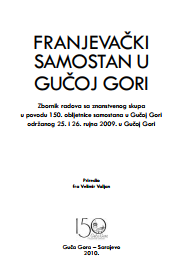Historijski i kulturnopovijesni metanarativi o Osmanskoj Bosni
The histro-graphical and cultural-historical meta-narrative on ottoman Bosnia
Author(s): Enver Kazaz
Subject(s): History, Modern Age, 15th Century, Identity of Collectives
Published by: Franjevačka teologija Sarajevo
Keywords: BiH; Bosnia; meta-narrative; Ottoman rule; cultural; historical; histro-graphical; identity;
Summary/Abstract: This research paper proposed the thesis that the model of cultural-historical identity construction in B&H was continually under ideological influence absorbing a meta-narrative system produced in histro-graphical science. In creating the historical image of the Ottoman rule in B&H this meta-narrative system developed a Manichean matrix of knowledge. Ottoman-phobic and Ottomanphylous meta-narratives absorb and remodel different ideological configurations and construct with them corresponding historical monologue concepts. In the article this concept is analyzed from the perspective of Hayden White and Dominic La Capare and there is an attempt to show how using its meta-narrative bases as interpretation strategies producing an image of past reality in the histro-graphical narrative negates the manifoldness and hybridism of identity in Ottoman Bosnia. By analyzing the order of identity in Ottoman Bosnia from a theoretical perspective a hierarchy of identities derived from perspective Ottoman-concentricity and Islam-concentricity was established, and from that relation all other identities became peripheral and marginal. So Bosnia won the status of inner otherness, which in the periphery of the empire, possesses the inner symbol of the outside enemy in the Christian community. Everyday culture and praxis of identity hybridism negate the Ottoman-phobic Islam-phylous meta-narrative, and the research paper derived from examples of Bogdanovich’s Annals of Kreševo Monastery with the identity point of view showing that in everyday life praxis the rights from the famous Ahdnama were negated and suspended, and afterwards, from ideological base of milet system. The conclusion is that the chronicles of the Bosnian Franciscans are like a model of history of quotidian life in one peripheral, marginal and discriminating identity in the Ottoman Empire and were attempting to establish a new model of culturalhistorical knowledge in B&H.
Book: Franjevački samostan u Gučoj Gori
- Page Range: 363-393
- Page Count: 31
- Publication Year: 2010
- Language: Bosnian
- Content File-PDF

